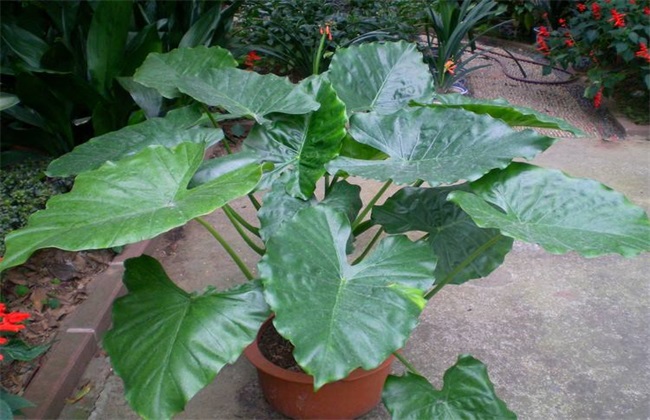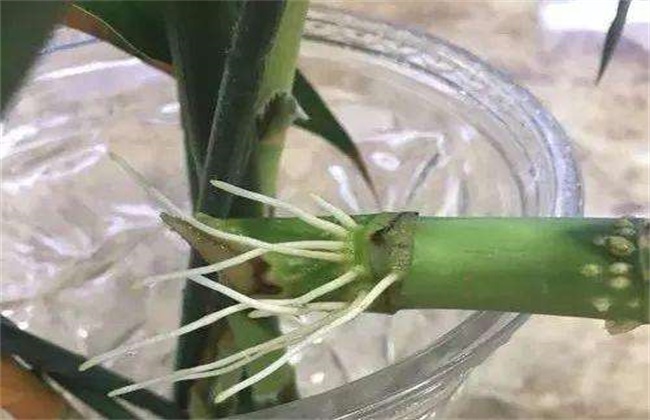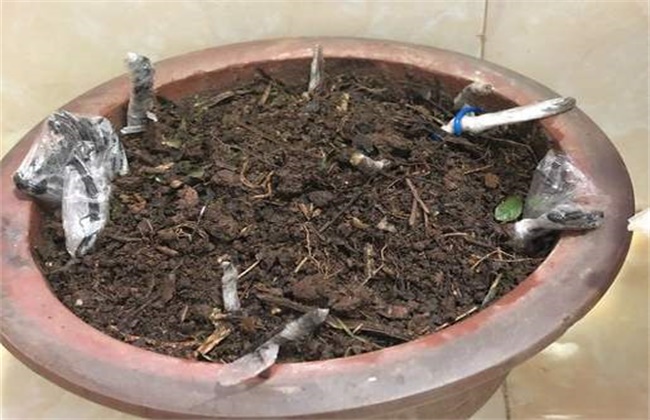Planting methods of Amorphophallus
Sea taro is a common plant in the south of China, and it is also very popular as a potted plant. And sea taro not only has a very high ornamental value, its rhizome can also be used as medicine. Can treat abdominal pain, cholera and other problems. Therefore, there are more people growing sea taro now. So how do you do it if you want to grow sea taro? The following editor has brought you the planting method of sea taro, let's have a look!

1. Land selection and fertilization
Sea taro is suitable for growing in warm and sunny places. Therefore, before we plant sea taro, we should select planting plots and choose places with high terrain, dry, normal drainage and irrigation, high fertility and plenty of light. Then do a good job of soil preparation and apply sufficient base fertilizer. Base fertilizer should be based on long-term organic fertilizer, mainly mature farm fertilizer and appropriate amount of cake fertilizer, compound fertilizer and so on. The base fertilizer should be fully spread on the soil and fully mixed with the soil to improve the soil fertility. Then make the border, keep the width of the border at about 1 meter, and then dig the trench about 35cm to prepare for planting.
2. Timely planting
The transplanting time of Amorphophallus seedlings is usually around May. No matter what the planting method is, it can be transplanted when the seedlings grow about 3 true leaves. Before transplanting and planting, we should grade according to the size of the seedlings. The seedlings of similar size were planted together, the plant spacing was controlled at about 60cm, and the row spacing was about 70cm. The number of planting per mu should not be too much, it should be carried out around 4 o'clock in the afternoon, when there is no dew, and the temperature will not be too high. After planting, we should pay attention to watering the root water once, and then apply the dilute dung water again after about three days.
3. Ploughing and weeding
About 5 days after the root water was handed over, the work of intertillage and weeding should be carried out, and the depth of intertillage was about 8-9cm. The second intertillage will be carried out half a month later, and this time the intertillage should be mainly shallow ploughing, with a depth of about 4cm. Then ploughing is carried out about twice a month until the closure of the plant stops. When the plant is overwintering, we should pay attention to cultivate the soil and set up a plastic shed to provide a warm growing environment for sea taro. To avoid the damage of low temperature and frost during overwintering, affect the growth and reduce the planting benefit.
4. Field management
After planting slow seedlings, the seedlings should be properly watered once a week to increase the amount of nitrogen fertilizer. In the summer, we should pay attention to watering work, to often sprinkle water to the leaves, should be carried out in the morning or afternoon. Then we should pay attention to remove the old leaves and yellow leaves of sea taro every month to improve the permeability and avoid the speed of water evaporation too fast. Finally, shading should be done well, because the resistance to strong light of sea taro is relatively poor, and if it is exposed to direct sunlight, the leaves are very easy to burn.
The above is a brief introduction to the planting method of sea taro. That's all for today's introduction. This article is for reference only. I hope it can help you all.
Related
- Fuxing push coffee new agricultural production and marketing class: lack of small-scale processing plants
- Jujube rice field leisure farm deep ploughing Yilan for five years to create a space for organic food and play
- Nongyu Farm-A trial of organic papaya for brave women with advanced technology
- Four points for attention in the prevention and control of diseases and insect pests of edible fungi
- How to add nutrient solution to Edible Fungi
- Is there any good way to control edible fungus mites?
- Open Inoculation Technology of Edible Fungi
- Is there any clever way to use fertilizer for edible fungus in winter?
- What agents are used to kill the pathogens of edible fungi in the mushroom shed?
- Rapid drying of Edible Fungi



